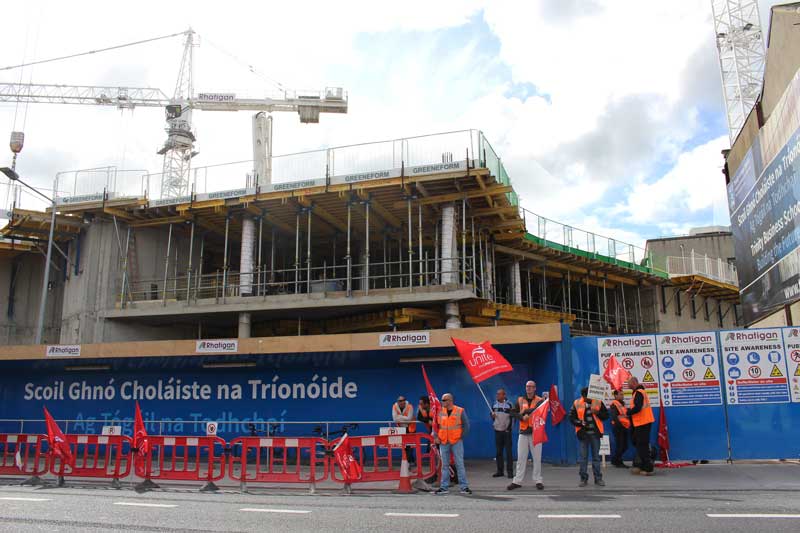Tower crane operators who are members of trade union Unite picketed today outside the Trinity Business School construction site as part of larger industrial action taking place across the city.
The one-day picket follows negotiations in the Workplace Relations Commission held in July, attended by Unite, which failed to resolve the workers’ gripes.
In the next few weeks, Unite will be writing to the clients of the construction companies, like Trinity, to inform them what they see as poor treatment of workers. Speaking to The University Times, Unite organiser Rob Kelly claimed some construction companies are “blacklisting” employees who are members of Unite, which represents 90 per cent of crane operators in Ireland.
As it stands, the crane operators get €16.69 an hour, but Unite is arguing that their work has traditionally afforded them higher pay due to its more technical nature. Kelly stated that “it’s technical, anything can go wrong and there’s a legal responsibility on them”, arguing that “their pay should accurately reflect that”.
Unite is looking for a minimum of a 10 per cent pay increase on what some of the higher-paid crane operators are earning in Dublin, which Kelly said was “not exorbitant by any means”.
Kelly, speaking on the wider impact of the industrial action, stated that “what these guys are fighting for will have a knock-on effect for the rest of the construction industry where other workers can get encouraged from these to get better pay and conditions for themselves”.
Across Dublin strike action is taking place on several construction sites, including sites on Clanbrassil St and Brunswick St in Smithfield.
In Trinity, work continued as normal today on the Business School site, with work seemingly continuing largely uninterrupted. JJ Rhatigan & Company, one of Ireland’s largest construction companies, is contracted to build Trinity’s new business school on the site of the old Luce Hall.
Work began on the site of the €82.5 million Business School in 2016 and is expected to be completed in 2018.







